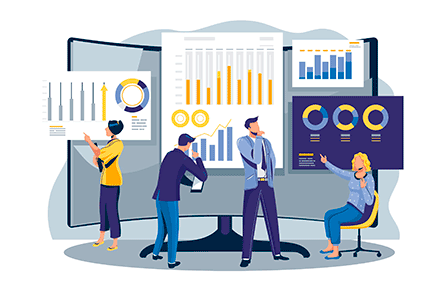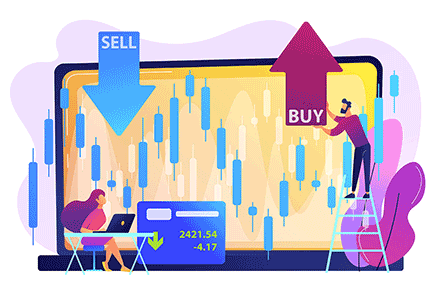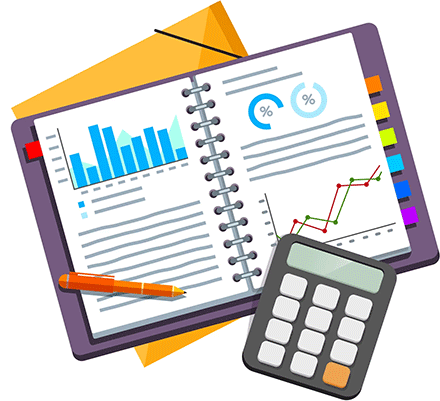Currency exchange rates are one of the most closely watched and analyzed metrics in the global financial market. Every day, businesses, tourists, governments, and traders seek to understand and anticipate changes in these rates, as they affect everything from the price of your morning coffee to billion-dollar business deals. Let's dive deep into what these rates are and explore the specifics that drive them. Currency exchange rates, often simply called exchange rates, denote the value of one currency relative to another. For instance, if the EUR/USD exchange rate is 1.20, it means 1 Euro is equivalent to 1.20 US Dollars. These rates fluctuate regularly, sometimes even by the second, based on a multitude of factors.
Types of Exchange Rates
-
Fixed or Pegged Exchange Rate: Some countries choose to 'peg' their currency's value to a major currency like the US Dollar or the Euro. The central bank commits to maintaining this fixed rate by either storing ample reserves of the currency to which they are pegged or adjusting their country's monetary policy.
-
Floating Exchange Rate: Here, the currency's value is allowed to move according to the foreign exchange market. It's driven by supply and demand dynamics. Major currencies like the US Dollar, Euro, and Japanese Yen have floating rates.
-
Managed Float: A hybrid system where a country's currency value floats, but the central bank intervenes occasionally to stabilize or increase its value.
Forex Exchange Rates
Factors Influencing Exchange Rates
-
Interest Rates: Higher interest rates typically offer lenders better returns, attracting more foreign capital. This drives up the exchange rate.
-
Economic Growth: Countries with stable economic growth tend to attract foreign investments, increasing the demand for their currency.
-
Political Stability: Countries with less risk for political turmoil are more attractive to foreign investors. For this reason, stable countries will generally have stronger exchange rates.
-
Inflation: Generally, countries with lower inflation rates will see an appreciation in the value of their currency relative to countries with higher inflation.
-
Current Account Deficits: Countries that are spending more on foreign trade than they are earning usually face a decrease in currency value.
-
Market Speculation: If traders believe a currency will strengthen in the future, they will buy more of it now.
Forex Cross Rates
Importance of Exchange Rates
-
Trade Balance: Exchange rates influence a country's trade balance, which is the difference between exports and imports.
-
Investment: The strength or weakness of a country's currency can attract or deter foreign investment.
-
Tourism: Travelers are very much influenced by exchange rates. A strong currency can make overseas trips more expensive for citizens while attracting foreign tourists looking for favorable exchange rates.
-
Sovereign Debt: Countries with large amounts of debt denominated in foreign currencies will see debt payments rise when their currency weakens.
Currency exchange rates are a mirror reflecting a country's economic health and stability. They are influenced by a mix of geopolitical events, economic data, interest rates, and market speculation.
For businesses and individuals alike, understanding the nuances of exchange rates can help in making informed decisions, be it in trading, investing, or even planning a vacation abroad. In today's interconnected world, the importance and intricacies of currency exchange rates cannot be overstated.
Related Materials
Forex trading, an intricate dance of buying and selling currency pairs such as EUR/USD, GBP/USD, and USD/JPY, operates continuously five days a week. Often called foreign exchange trading, the core objective is to profit from shifts in currency pair values.
The forex market has witnessed a rise in the popularity of Percentage Allocation Management Module (PAMM) services, as both retail traders and institutional investors seek out ways to diversify their portfolios and earn passive income. As 2023 unfolds, it's pivotal to identify which brokers are at the forefront of offering top-notch PAMM services..
Copy trading, a revolutionary method in the trading world, has emerged as a boon for both seasoned traders and beginners. It's an automation process that allows traders to mirror the moves of more experienced counterparts.
If the concept of hedging in the world of Forex has left you intrigued, search no further. This comprehensive article will unravel the intricacies of Forex hedging, furnish you with a practical example of a Forex hedging strategy, and delve into the "Hold Forex Strategy" and more.
The Forex market is the largest financial market globally, with a daily trading volume exceeding $6 trillion. Forex trading has become increasingly accessible to retail traders, thanks to the proliferation of online Forex brokers. However, selecting the right broker is a critical decision that can significantly impact your trading success.
Leverage is a powerful tool in the world of forex trading. It allows traders to control a large position size with a relatively small amount of capital, amplifying both profits and losses. While leverage can enhance potential gains, it also comes with significant risks. Therefore, choosing the right forex broker and evaluating their leverage offering is crucial for traders seeking success in the competitive forex market.
In the vast and dynamic landscape of global finance, the Forex market reigns supreme, presenting both unparalleled opportunities and significant challenges. At the heart of this complex ecosystem is the principle of risk management, a foundational pillar for anyone looking to navigate the often turbulent waters of Forex trading. In essence, risk management in Forex trading isn't merely a safety mechanism; it's an integral part of a holistic trading strategy, ensuring sustainability, promoting discipline, and maximizing the potential for success.
Brokers have a variety of ways in which they charge traders for their services. Understanding these fees and commissions is crucial for any trader who wants to manage their trading costs effectively.
The dynamics of the Forex market have dramatically evolved over the past few years, not just in terms of technology and tools, but also in how traders interact and share information...
In the rapidly evolving world of online trading, where decision-making speed, strategy efficacy, and real-time responsiveness play crucial roles, preparation becomes paramount. This is where demo accounts enter the scene, offering aspirants and seasoned traders alike an invaluable platform. Designed to mimic real-world trading conditions without actual financial risk, demo accounts serve as a bridge between theoretical knowledge and real-world trading execution. They provide an arena for traders to practice, learn, and refine their strategies, ensuring they're equipped with the experience and confidence needed to navigate the often tumultuous waters of the financial markets.
Trusted Forex Brokers
| Broker | Review | Rating | |
|---|---|---|---|
| 1 | HF Markets | ||
| 2 | NordFX | ||
| 3 | Octa | ||
| 4 | FXCM | ||
| 5 | Interactive Brokers | ||
| 6 | ActivTrades | ||
| 7 | FXTM | ||
| 8 | easyMarkets | ||
| 9 | HYCM | ||
| 10 | SaxoBank | ||
| 11 | FxPro | ||
| 12 | Moneta Markets | ||
| 13 | XM | ||
| 14 | FOREX.com | ||
| 15 | Admirals | ||
| 16 | eToro | ||
| 17 | FIBO Group | ||
| 18 | Pepperstone | ||
| 19 | PrimeXBT | ||
| 20 | IronFX | ||
| 21 | Forex4you | ||
| 22 | InstaForex | ||
| 23 | INGOT Brokers | ||
| 24 | Swissquote Bank | ||
| 25 | Oanda |









